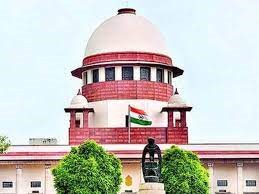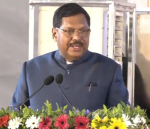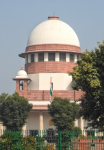
- Govt is an important stakeholder in the process of appointment of judges in Supreme Court and high courts’
- Vice president also criticized the process of judges’ appointment, calling it ‘opaqueness
- SC recently said that it is a “matter of concern” that the government is sending back the names reiterated by the Collegium
Union government has written a letter to Chief Justice of India DY Chandrachud suggesting that the Supreme Court Collegium, which appoints the judges, should include central government representatives.
In the letter, Union Law Minister Kiren Rijiju asked for inclusion of government representatives in the SC-created two-tiered collegiums for infusion of transparency and public accountability into the selection process of constitutional court judges, according to Times of India. He has also suggested the inclusion of state government representatives in High Court collegiums.
In a letter dated January 6, the Union government underlined that the government is an “important stakeholder in the process of appointment of judges in the Supreme Court and high courts” and therefore, its views should also find a place in preparation for the panel of names who are eligible for being appointed as judges of the constitutional courts, according to Hindustan Times.
The top court has recently said that it is a “matter of concern” that the government is sending back the names reiterated by the Collegium for the judgeship in constitutional courts despite there being nothing in the present scenario to prevent the appointment post reiteration.
The context
The development is likely to further escalate ongoing tug-of-war between the government and judiciary. The Law Minister in November had called the collegium system “opaque” and said India was the only country where judges appoint judges. Critics, including many prominent lawyers, have been accusing the Union government of attempting to control judicial appointments ever since Narendra Modi came into power in 2014.
Collegium
The collegium system allows the Chief Justice of India and a panel of four senior-most judges of the Supreme Court to recommend appointments and transfers of judges. The system was framed by the Supreme Court judgments in the “Three Judges Case” dating to October 28, 1998. The two-tiered collegiums are a 25-year-old system through which judges of the Supreme Court appoint judges to the apex court and high courts. At present, the collegium comprises CJI Chandrachud, and Justices S.K. Kaul, K.M. Joseph, M.R. Shah, Ajay Rastogi and Sanjiv Khanna.
Public posturing from judicial platforms is not good: VP
Last week, Vice President Jagdeep Dhankar said, “Public posturing from judicial platforms is not good.” He has also criticized the process of judges’ appointment, calling it ‘opaqueness. In his maiden address to Rajya Sabha in December, Dhankar hit out at the SC for scrapping the National Judicial Appointment Commission (NJAC), which was established by an Act of Parliament, terming it a compromise of parliamentary sovereignty.


















